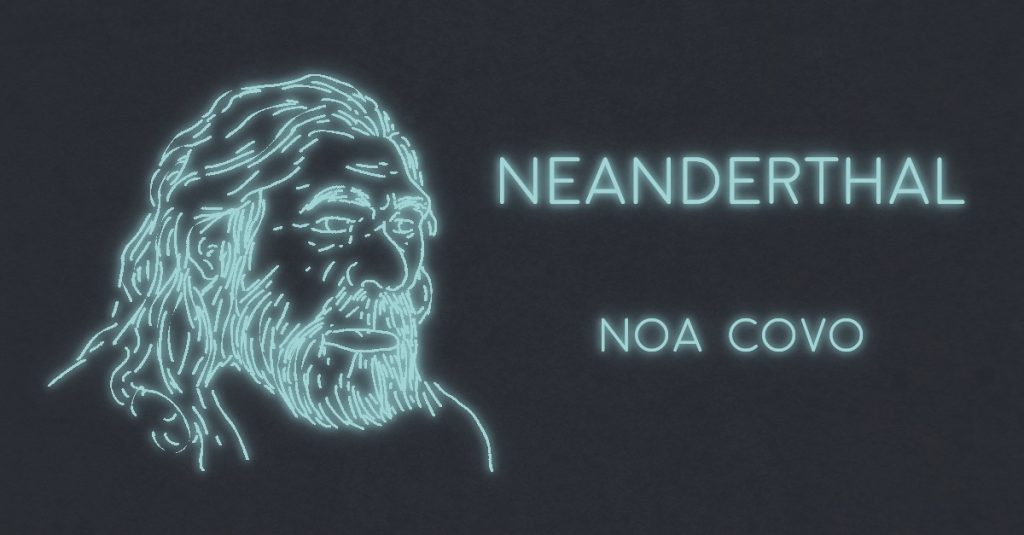Two months after we get married, my husband tells me he is the last Neanderthal on Earth. We are nestled together on the couch when he says it, and I can tell he is serious. I do not laugh. I ask him how long he’s known. He says he first found out when he was a teenager. An archaeologist came to his school, as part of an attempt to encourage rural Americans to get into science. After the assembly, my husband was called to the principal’s office.
I imagine my husband on his way to the office, his shoulders hunched and his arms swinging like pendulums. For as long as I’ve known him, he’s never gotten in trouble for anything. I ask him if he was chewing gum, and my husband shakes his head and continues.
The archaeologist was waiting for him in the office. He’d seen him at the assembly and wanted a closer look. He ran his large, white hands over my husband’s head and asked him questions about his family he did not know how to answer. In the end, he turned to my husband and told him he was probably the last Neanderthal on Earth. I knew he was right, my husband says, because I’ve always felt different, not quite human, I’m too short, my head is too big. I trace my husband’s jawline as he tells me this. I wonder what he told the archaeologist about his family, if he told him that he was found on the steps of a church as an infant, with nothing but a blanket wrapped around his pale body. I do not ask him that. Instead, I ask him if he thinks his biological parents were Neanderthals, too.
My husband gets up off the couch and goes to the kitchen. Maybe, he says, arms swinging. Maybe they wanted me to live a better life. I picture his family living in the cave behind the strip mall, where high-schoolers go to drink cheap beer. I imagine them scavenging berries and eating Doritos crumbs, I imagine them giving up their little Neanderthal baby to Homo sapiens, so that he’d have a future in this fast moving world. After that evening, he doesn’t bring it up again, and neither do I.
A few months later, my parents take us to a museum. I don’t want to go, but my husband does. He loves my parents, or rather their stability, so unlike his Neanderthal biological parents or his dead adopted ones. My parents are two old people that get excited over television reruns and travelling exhibits, and for my husband, they are everything.
We step into a hall full of ancient pottery. My parents stick close to the walls, leaning in to read the signs full of small print. My husband and I walk together, hand in hand, away from the glass. I pause to look at one of the pieces, a pot cracked down the side but miraculously intact. I feel my husband drift off with the flow of visitors. I wonder what ended up cracking this pot, preserved for thousands of years, if it was found cracked or if some intern ruined it, a careless action becoming a dark secret. When I look up, my husband is gone. I walk past the pots until I find him at the beginning of a new exhibit. He is staring at a drawing of a reconstructed face, a Neanderthal woman with kind, brown eyes, smiling down at the two of us.
My husband begins to cry under her soft gaze. I run my hands over his enlarged skull, over his swinging arms, I stare up at the wise Neanderthal woman. I wish she could come to life and embrace my husband like a mother, that she could tell me some ancient wisdom, that she could teach me to heal his pain. Instead, she just smiles, unaware that she has left the last of her species all alone.

